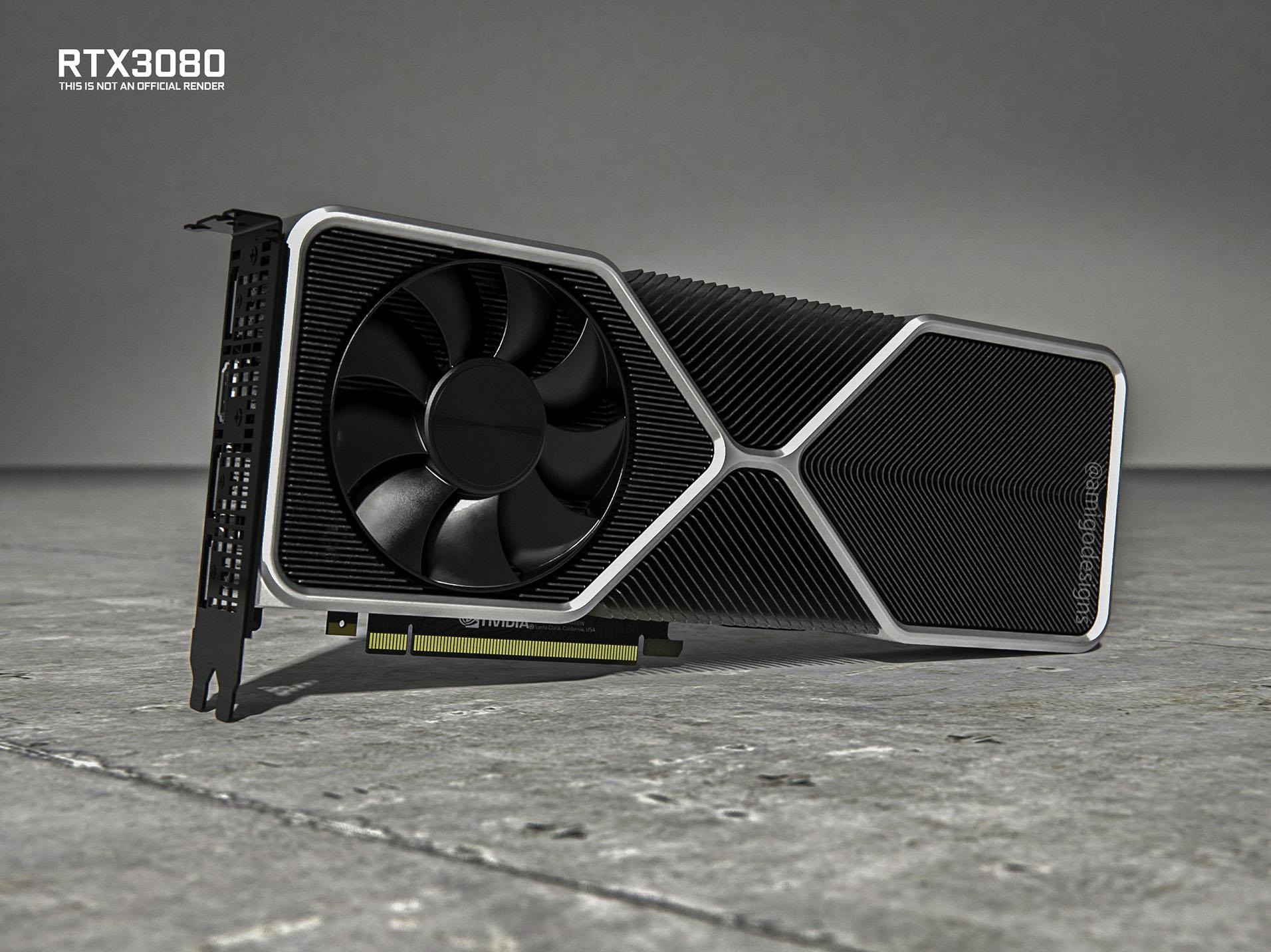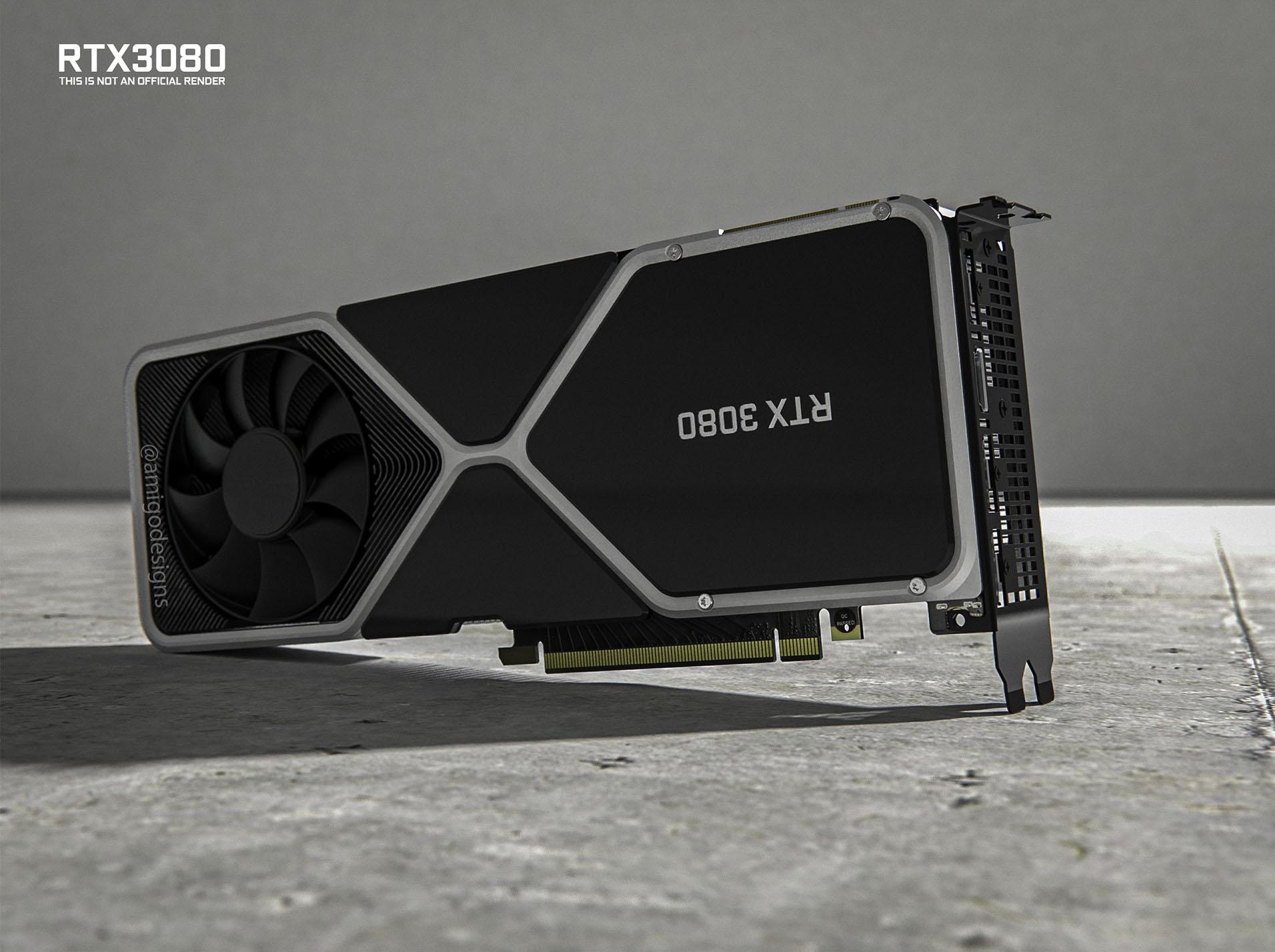Rumored Nvidia RTX 3080 Frowns for the Camera in Questionable Pictures
We doubt this is Nvidia's RTX 3080.
Get Tom's Hardware's best news and in-depth reviews, straight to your inbox.
You are now subscribed
Your newsletter sign-up was successful
Supposed images of a Nvidia RTX 3080 graphics card has been circulating the web, but we're not so sure they're real. Why? Because Nvidia's graphics cards usually look premium, and this one doesn't even look good. And that's just the start of it.
The image originally surfaced at the Chiphell forums. Afterward, various parties created cleaner renders and mock-ups.
The design consists of a fairly regularly proportioned dual-slot graphics card but with one fan on either side. It appears that one fan is for blowing air into the card, while the other one is for exhausting. However, it doesn't look like airflow is intended to head from one fan to the other. Instead, it appears that the intake fan is meant to push air though a heatsink and out the sides of the card, with the rear 'exhaust' fan drawing air through another portion of the heatsink.


Despite the large amount of blade surface, this doesn't seem like an efficient design. There isn't an appropriate amount of space between the blade, and we don't see any trace of heatpipes in between.
For this graphics card to work, the metallic X structure would have to be for decoration only or else air from the intake fan wouldn't have anywhere to go. However, the X structure looks important to the card's structure in the mock-ups.
While we won't know for sure until we hear more about Nvidia RTX 3080 and Ampere, we doubt that these images are representative of the Nvidia's final Founder's Edition of the RTX 3080. It's a little more possible that the images show some sort of prototype or third-party design, but you should still keep the salt handy.
Get Tom's Hardware's best news and in-depth reviews, straight to your inbox.
Niels Broekhuijsen is a Contributing Writer for Tom's Hardware US. He reviews cases, water cooling and pc builds.
-
ravewulf They're both intake fans but on opposite ends, as well as opposite sides, of the card. Check the position of the PCI bracket as the card was flipped over right to left for the photoReply
